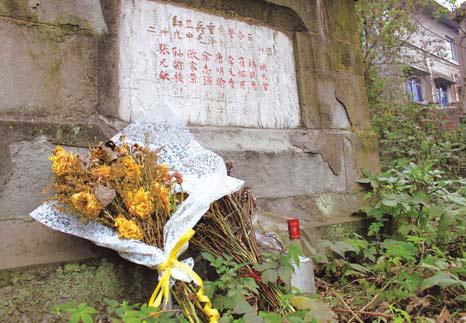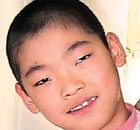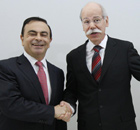Society
Red Guards cemetery reveals scars yet to heal
By Peng Yining (China Daily)
Updated: 2010-04-08 06:47
 |
Large Medium Small |
Scars from fighting
|
 Flowers and a bottle of alcohol have been placed next to a tomb in the cemetery by relatives or friends of young people killed in wu dou. [China Daily] |
The gate to the graveyard is usually locked and, although visitors occasionally peep through its rusty iron bars, city government officials said they have no plans to open the site to the public.
Most of its 131 tombs, which are arranged in a style similar to the Monument of People's Heroes in Beijing's Tian'anmen Square, contain more than one body, while the gravestones all point east - the direction that represents both the rising sun and indicates loyalty to Chairman Mao.
The smell of the moist earth pervades in the air, while the only sound is the distant carrousel music from the nearby amusement park.
"The people laid in this cemetery are not antagonists or heroes, they are innocent victims," said Zeng, who explained that the scars left by the "cultural revolution" prevented him from visiting the Shapingba site for more than 40 years.
His schoolmate, Zhu Rongfan, is buried here. A member of the 815 group, Zhu died when he was just 20 on the same day his brother was also killed fighting for the rival Fan Dao Di faction.
"Most of the fighters were younger than 20," said the amateur historian. "They were so young and passionate. They wanted to be heroes and fight like the martyrs the government applauded."
When he was 15, Zeng watched a teenager throw a grenade into a school dormitory that was being used by his opponents. He also narrowly escaped death himself when he stood beside a man gunned down in a hail of bullets.
"All I can remember is thinking, 'Why can't I join in with this great revolution?' The battle cries stirred my blood," he said. "I joined a group founded by two senior students but I was soon ejected because my father used to work in a bank. They called him a 'capitalist'. How can the son of a capitalist join in the Party's revolution against capitalism?"
Walking through the cemetery, Zeng was unable to hide his emotions.
"If they had let me stay in their group, it would be me buried under that stone," he said solemnly as he pointed at one of the graves. "This place represents an ugly era in Chinese history.
"We should always remember and learn from it."
After finally returning to visit the tombs in 2005, Zeng decided to write a book about the people buried in Shapingba Park. He visits the graveyard almost every day and has interviewed more than 1,000 relatives of the dead.







